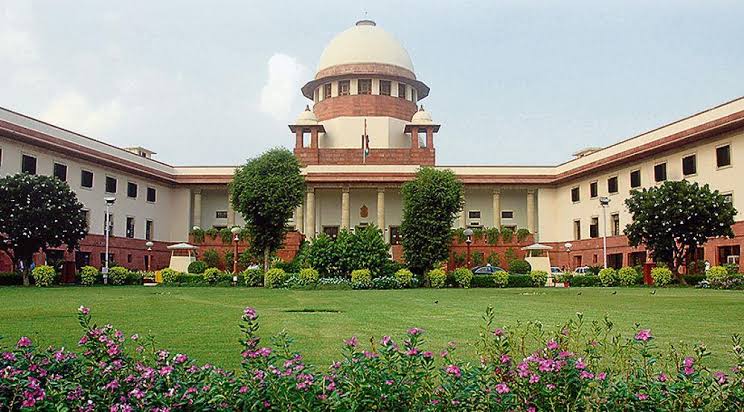
New Delhi: The Supreme Court bench comprising of Justices BR Gavai, Aravind Kumar and K V Viswanathanheld that the mere existence of a benchmark disability is not a reason to bar a person from pursuing medical education unless there is a report by the disability assessment board that that candidate is incapacitated from studying the MBBS course. The bench further said that mere quantification of the disability will not disbar a candidate and the capacity to pursue the course has to be examined by the disability assessment board. The negative opinion of the disability assessment board is not final and can be reviewed by the judicial bodies till appellate forums are created, the Court added. The petition was filed by a candidate with 40-45% speech and language disability seeking MBBS admission. The petitioner challenged the Graduate Medical Education Regulation, 1997 which barred persons with equal to or more than 40% disability from MBBS course.
The bench said “Mere existence of benchmark disability will not disqualify a candidate from being eligible for the course. The disability board assessing the disability of the candidate must positively record whether the disability of the candidate will or will not come in the way of the candidate pursuing the course. Disability board should also state reasons in the event it concluding that the candidate is not eligible in pursuing the course. Pending creation of appellate bodies, the negative opinion of the disability assessment boards would be amenable to challenge in judicial review proceedings. The Courts seized of the matter should refer the candidate to any premier medical institute having facility for an independent opinion and relief to the candidate would be granted or denied based on the opinion of the said medical institution.”
The bench had passed an order allowing the candidate MBBS admission after a medical board constituted by the Court opined that he could pursue medical education. The bench delivered the detailed judgment giving reasons for its previous order. The judgment pronounced by Justice Viswanathan held that “merely because the quantification of disability for speech and language is 40% or above, a candidate does not forfeit his right to stake a claim for admission.” The judgment held that such an interpretation would render the Graduate Medical Education Regulation “overbroad” for treating un-equals equally. “A constitutional court examining the plea of discrimination is mandated to consider whether real equality exists. The Court should not be carried away by a projection of facial equality,” Justice Viswanathan read out from the judgment.
The bench expressed the hope that in the revised regulations and guidelines which the National Medical Commission will issue, an “inclusive attitude” will be taken towards persons with disability from all categories, based on the concept of “reasonable accommodation” recognized under the Right of Persons with Disabilities Act 2016. In this regard, the Court commended the Union of India for the communication issued by the Ministry of Social Justice to the National Medical Commission. The approach of government instrumentalities and private entities should be how best they can grant an opportunity to candidates with disabilities and the approach should not be to how to disqualify them, the Court reminded. The concept of “reasonable accommodation” would compel the Court to interpret the Regulations in a manner that furthers the objectives of the Rights of Persons with Disabilities Act. The mandate of the law is to ensure the full and effective participation of persons with disabilities in society as equal citizens.

